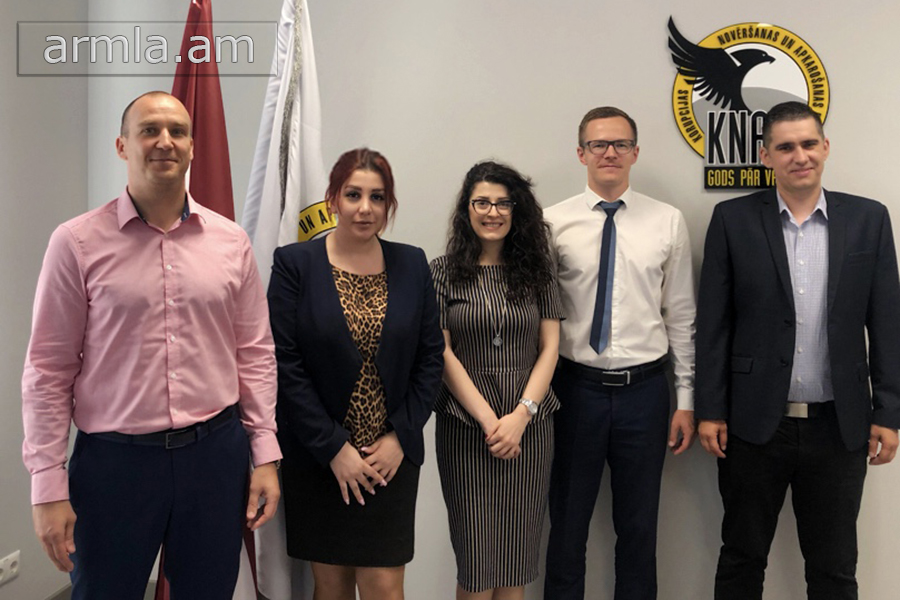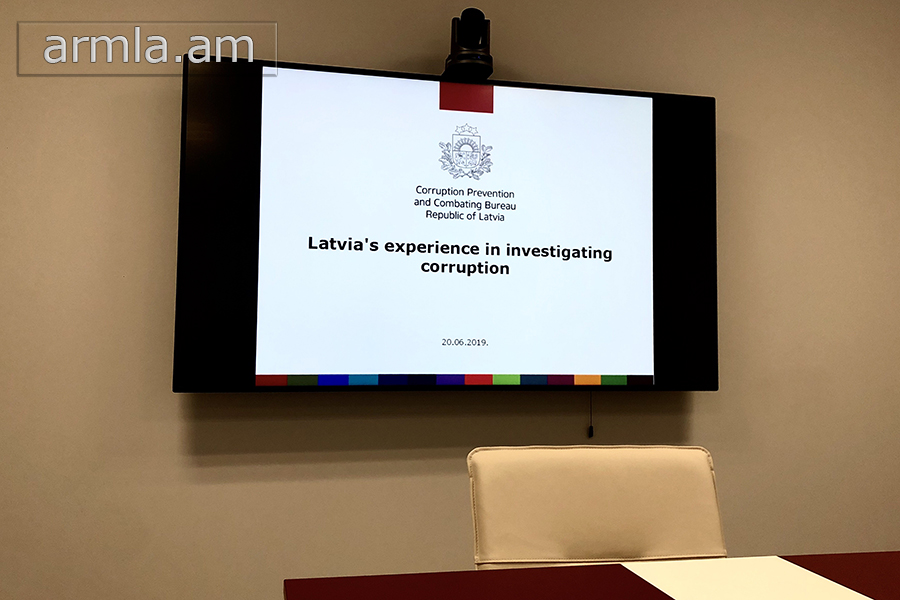
On 20 June, Ms Syuzanna Soghomonyan and Ms Mariam Zadoyan, representatives of the Armenian Lawyers’ Association, Secretariat of CSO Anti-Corruption Coalition of Armenia met with Mr. Renars Reiniks, Head of Department of Corruption Prevention and Combating Bureau of the Republic of Latvia (KNAB), Mr. Davis Sirmais, representatives of the anti-corruption education of the Bureau, and the coordinator of the Anti-Corruption Strategic Analysis Department.
Within the framework of the visit, the representatives of Secretariat of CSO Anti-Corruption Coalition of Armenia were familiarized with three directions of the Corruption Prevention and Combating Bureau of the Republic of Latvia: law enforcement, corruption prevention and anti-corruption education, as well as other anti-corruption factors in the country.
It is noteworthy that in the recent past, a reorganization took place in the Bureau, as a result of which the Bureau added one more direction to its three activities: an anti-corruption strategic analysis, and for this purpose it created the Department of Strategy. The above mentioned department has four sub-divisions: strategic analysis, policy development, data collection and analysis, as well as strategic communication.
The representatives of the Coalition also inquired about the legislative guarantees of the Bureau’s independence. In response Mr. Reiniks stated that despite the fact that the Bureau is under the control of the Prime Minister, yet the Prime Minister’s powers are rather limited, and in fact they include only some of the powers related to the Bureau’s structure. Moreover, in order to ensure high guarantees of independence, the Bureau Chairperson is elected by the Latvian Parliament. And from this point of view, it is noteworthy that the current Head of the Bureau has been elected by the Parliament with 0 votes “against”. In other words, the head of the Bureau was elected on the basis of consensus.
Particular attention should be paid to the work of the Bureau, which is related to the financing of parties and transparency of their activities, the implementation of vetting, as well as the limitations on donations and borrowings by officials.
In conclusion, the representatives of the Bureau noted that the public itself should determine the model of a suitable anti-corruption body for its country, taking into consideration the internal peculiarities, experience and context. It is important, however, that the anti-corruption body be united, possess important information for its activities, and do not depend on any influence or legal limitations that may cast doubt on the independence of the body, the unity of the fight against corruption and its effective functioning.
The representatives of the Secretariat of CSO Anti-Corruption Coalition of Armenia also presented the process of anti-corruption reforms in Armenia, including the consistency and efforts of the coalition to create one universal anti-corruption professional body in Armenia. At the end of the meeting the sides exchanged souvenirs.

